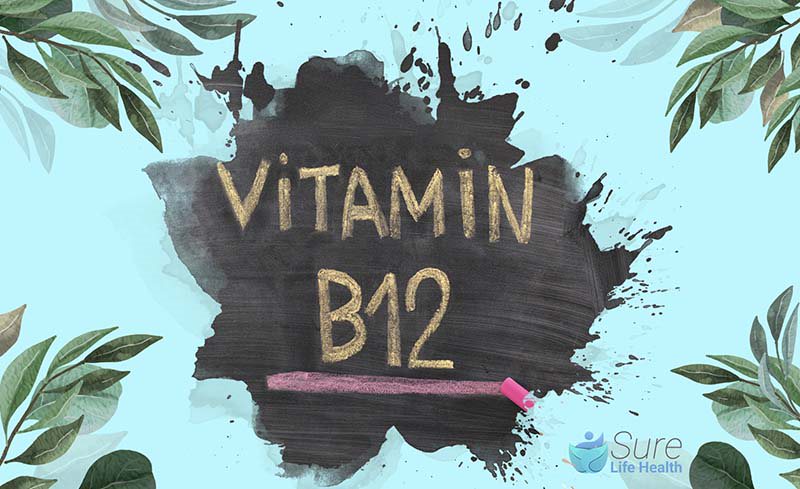Will Hair Grow Back From B12 Deficiency? This question introduces a lesser-known cause of hair loss—vitamin B12 deficiency. Unlike widely recognized causes such as male pattern baldness, the impact of B12 deficiency on hair health is less known. This section explains how a lack of this essential nutrient can lead to hair loss and outlines steps to address it.
Vitamin B12 deficiency, a common global nutritional shortfall, often leads to ‘folate deficiency anemia.’ Its symptoms, which can worsen over time, include severe health complications like neurological impairments and even heart failure. Addressing this deficiency is vital for both hair restoration and overall health.
Will Hair Grow Back from B12 Deficiency?
A clinical deficiency in Vitamin B12 often leads to anemia, which is closely associated with increased hair loss. Although Vitamin B12 supplementation can halt further hair loss, regrowth is not guaranteed once the deficiency is resolved.
For individuals noticing hair thinning or loss and suspecting it might be due to nutritional shortcomings—perhaps due to a restrictive diet—it’s advisable to undergo blood tests to confirm or rule out anemia.
Additionally, consulting a trichologist at the first signs of hair issues can provide a timely diagnosis of the underlying cause. Early intervention and treatment significantly enhance the chances of hair recovery.

Causes of Vitamin B12 Deficiency
Vitamin B12 deficiency can stem from multiple factors, each impacting the body’s ability to maintain adequate levels of this crucial nutrient.
Inadequate Dietary Intake
Animal-based foods are the primary sources of vitamin B12. Vegetarians, pregnant individuals, children, adolescents, and the elderly may have a higher risk of deficiency if their intake of these foods is insufficient.
Intrinsic Factor Deficiency
This protein is essential for B12 absorption. Its deficiency, often due to pernicious anemia, can severely hinder the body’s ability to absorb vitamin B12.
Gastrointestinal Conditions
Diseases such as celiac disease and Crohn’s disease can impair the small intestine’s ability to absorb vitamin B12, leading to deficiency.
Autoimmune Disorders
Conditions like pernicious anemia and autoimmune gastritis attack the cells producing intrinsic factor or damage the stomach lining, thereby disrupting B12 absorption.
Medications
Certain medications, such as proton pump inhibitors (PPIs), which reduce stomach acid, and metformin, used for managing diabetes, may also interfere with the absorption of B12.
Age-Related Decline
The natural aging process can diminish the body’s capability to absorb B12 from food, making deficiency more common in older adults.
Other Factors
Heavy alcohol use can compromise dietary intake and disrupt B12 absorption. Conditions like atrophic gastritis, infection with Helicobacter pylori, and genetic issues affecting intrinsic factor production further exacerbate the risk of deficiency.

Understanding the Connection Between Hair Loss and Vitamin B12
Low levels of vitamin B12 can significantly affect hair growth, often leading to excessive hair shedding. Here are some critical ways through which B12 deficiency impacts hair health:
Slowed Cell Division: Vitamin B12 plays a crucial role in DNA production and cell replication, processes essential for hair growth. Insufficient B12 slows these functions, thereby reducing hair production from follicles.
Disrupted Blood Flow: B12 is vital for red blood cell formation, which helps transport oxygen and nutrients to the scalp and hair follicles. A deficiency in B12 can diminish the blood supply to hair roots, impacting hair growth.
Decreased Hair Follicle Health: Vitamin B12 is necessary for metabolizing the nutrients that hair follicles need to remain healthy and productive. A lack of B12 can weaken follicle function and health.
Increased Folate Levels: B12 and folate levels are interdependent; a drop in B12 can cause folate levels to increase, which has been linked to hair loss.
Research has shown that addressing a vitamin B12 deficiency may aid in treating hair loss and promoting regrowth. However, if the deficiency persists for an extended period, it may result in irreversible damage to the hair follicles, making the condition permanent.
Effects of Vitamin B12 On Hair Health
Vitamin B12 is believed by researchers to be crucial in the development and metabolism of hair follicles, working closely with vitamin B9 (folate). Both vitamins are essential for red blood cell production and the synthesis of DNA and proteins. Deficiencies in either B12 or folate can decelerate these processes, impairing cellular functions essential for healthy hair growth.
An in-vitro study has indicated that B12 supplementation might stimulate hair follicles to enhance hair growth following a transplant. This finding suggests potential broader applications for B12 in hair regeneration, although further studies are necessary to fully understand and verify B12’s role in promoting hair growth.
While direct causation between low B12 levels and hair loss has not been definitively established, there is a notable correlation between B12 deficiency and premature hair greying. Research involving 52 young individuals with premature greying identified significant deficiencies in B12 and folic acid within this group, unlike in their healthy counterparts.
Note: Maintaining adequate levels of vitamin B12 and folate is crucial for supporting overall hair health. Individuals experiencing hair issues such as thinning or premature greying should consider evaluating their vitamin levels as part of a comprehensive approach to hair care.

Approaches to Combat Hair Loss Caused by B12 Deficiency
Addressing hair loss due to vitamin B12 deficiency necessitates a comprehensive strategy that includes dietary adjustments, lifestyle changes, and medical interventions. Here are several effective methods to overcome this shortfall:
B12 Injections: Administered by healthcare professionals, these injections rapidly boost B12 levels and are crucial for treating severe deficiencies.
Oral Vitamin Supplements: Daily B12 supplements can help sustain adequate levels for those with mild to moderate deficiencies or as a maintenance strategy following injection treatments.
Dietary Sources: Incorporating B12-rich foods like beef, eggs, and dairy into your diet can naturally enhance your vitamin levels. For vegans, nutritional yeast and tempeh are excellent sources of B12.
Address Underlying Causes: It is vital to manage any medical conditions that might be causing the deficiency, such as autoimmune disorders or gastrointestinal issues like celiac disease.
Reduce Stress: Chronic stress can deplete B12 stores, so engaging in stress-reduction practices such as yoga or meditation can be beneficial.
Check for Drug Interactions: Be aware that certain medications, like proton pump inhibitors, may interfere with B12 absorption and might require adjustments.
Use Supportive Hair Products: Over-the-counter shampoos, serums, and foams designed to support hair growth can complement the recovery from B12 deficiency.
Maintaining optimal B12 levels is essential for hair health. Always consult with a healthcare provider to tailor the treatment plan to your specific needs, ensuring both safety and effectiveness. Hair regrowth can be gradual, but consistent efforts will progressively restore your hair’s vitality.
How Much Vitamin B12 Is Too Much?
Vitamin B12 is crucial for keeping your nerves healthy, helping your brain work right, and making DNA and red blood cells. Adults generally need about 2.4 micrograms of B12 each day. Since B12 dissolves in water, it’s usually okay to take more than this amount if it comes from food.
Your kidneys will just flush out any extra through your urine. However, if you’re pregnant, you should aim for about 2.6 micrograms daily, and if you’re breastfeeding, bump that up to 2.8 micrograms.
Note: Even though it’s rare to get too much B12, taking very high doses from supplements can sometimes cause mild issues like feeling dizzy, headaches, or feeling nervous. Always talk to your doctor before starting any new vitamins, especially if you’re pregnant or have other health issues.

Other Reasons Why You Might Have Hair Loss
Besides a lack of vitamin B12, there are many reasons why you might be losing hair, and it’s usually a mix of factors. Here are some common causes:
- Hormonal Changes: Hormones like DHT and DHEA can affect your hair.
- Nutritional Deficiencies: Not getting enough nutrients, such as zinc, or issues from not eating regularly can lead to hair loss.
- Health Issues: Conditions like diabetes can make your hair thin.
- Autoimmune Disorders: Diseases where your body attacks itself, like alopecia areata or lupus, can cause hair loss.
- Scalp Problems: Issues like psoriasis or seborrheic dermatitis can affect your scalp’s health.
- Medical Treatments: Sometimes procedures like surgery or testosterone replacement therapy (TRT) can cause hair to fall out.
- Stress and Anxiety: High stress and anxiety levels can lead to hair loss.
- Medications and Supplements: Some drugs and supplements, like Adderall, gabapentin, steroids, creatine, amlodipine, and birth control, can contribute to hair loss.
- Hair Damage: Using harsh hair products, dying your hair often, washing it too much, or tight hairstyles can damage hair.
If you’re worried about hair loss, it’s a good idea to see your doctor. They can help figure out what’s causing it and suggest ways to treat it.
Conclusion
Will hair grow back from B12 deficiency? While hair loss, or alopecia, is primarily influenced by genetics, aging, medical conditions, hormonal shifts, medications, and stress, the link between vitamin B12 deficiency and hair loss remains unclear with no solid research confirming it.
Although many products, including those containing vitamin B12, claim to treat hair loss, these should be approached with caution. Vitamin B12 is crucial for overall health but isn’t directly linked to promoting hair growth. For effective hair loss management, treatments like minoxidil and finasteride are recommended.
Don’t miss the opportunity to explore further insightful content from SurelifeHealth.
Professor Gaye Cunnane, PhD, MB, FRCPI
As the Director of Health and Wellbeing at RCPI, Professor Gaye Cunnane is at the helm of initiatives aimed at enhancing the health and well-being of RCPI Trainers and Trainees. Her role extends beyond administration; she is also a respected clinical professor of rheumatology and a consultant rheumatologist at Trinity College Dublin (TCD) and St James’s Hospital. Prof. Cunnane’s medical journey began at TCD, where she graduated from medical school, and her path has been marked by both clinical and academic excellence.
After completing her basic clinical training in medicine, she embarked on PhD studies at University College Dublin and St Vincent’s University Hospital. Her research during this period was focused on prognostic markers in early inflammatory arthritis, a project that saw her collaborating with esteemed universities across Europe, including in Switzerland, The Netherlands, the UK, and Sweden.
Prof. Cunnane’s career took her to the University of California, San Francisco, where she spent three years delving into research on new treatments for lupus. Her academic prowess led her to the University of Leeds in 2001 as a senior lecturer, before returning to Ireland in 2003 to assume her current roles. She has also served as the National Specialty Director for Rheumatology training in Ireland, Programme Director for Basic Specialist Training with RCPI, and as a past President of the Irish Society for Rheumatology.
PUBLISHED ARTICLES
“Rheumatic disease differentiation using immunoglobulin G sugar printing by high-density electrophoresis”: Published in The Journal of Rheumatology, this study reflects her in-depth investigation into rheumatic diseases.
“Benefits of exercise in patients with rheumatoid arthritis: a randomized controlled trial”: This research work, highlighting the positive impact of exercise on rheumatoid arthritis, underscores Prof. Cunnane’s dedication to practical, patient-centered research.
Additionally, Prof. Cunnane has made notable contributions to the Annals of the Rheumatic Diseases, discussing early referral, diagnosis, and treatment of rheumatoid arthritis. She has also been involved in a study on the NCBI platform investigating exercise benefits in rheumatoid arthritis patients.
Professor Gaye Cunnane’s career is a testament to her commitment to improving patient outcomes in rheumatology through rigorous research, clinical excellence, and dedicated teaching. Her work continues to influence the field of rheumatology, both in Ireland and internationally.

